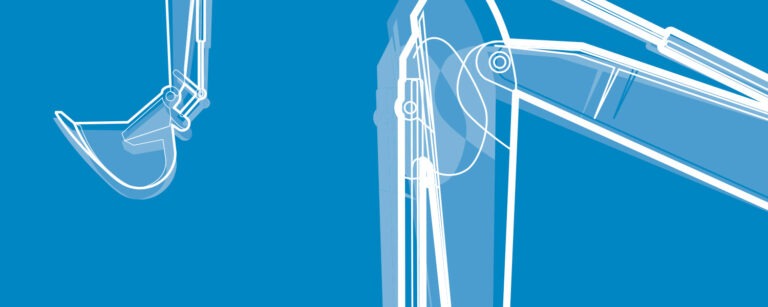
Who’s digging at this time of night...?
19. February 2024

Glass fibers are used for more than just fast internet. These materials are also playing an increasingly important role in chassis-building. The Rheinmetall Group, for example, has developed an innovative technology for car chassis springs in its Materials and Trade division. Users can now enjoy the benefits of lasting improvements to weight and handling as well as many other things besides.

The Oscar of the Plastics Industry
In 2022, Rheinmetall’s glass-fiber springs won the prestigious SPE Automotive Award presented by the Society of Plastics Engineers Inc. in the Grand Innovation Award category, taking the top spot ahead of fierce competition in a vote by a 27-strong panel of expert judges.
As the world moves toward electric vehicles, much attention is being focused on lightweight engineering – and that applies to chassis as well. Special leaf springs made from lightweight materials are already in use in certain vehicles as a result of this development. But because many modern passenger car chassis use steel springs for reasons of space, Rheinmetall has devised an innovative solution that is based on fiber-reinforced plastic and features a space-saving design not seen anywhere else in the world.
It is no wonder, then, that the new glass-fiber springs rapidly began to attract interest from famous carmakers before they had even left the development stage. Having initially been installed in a lightweight technology demonstrator from a prestigious German manufacturer of premium automobiles, they have delivered such positive results that they could well find their way into the brand’s production of electric vehicles. Preparations for advanced field tests with the new springs are also being made among a number of other high-profile car manufacturers both in Germany and elsewhere.
Challenges Facing Developers
Before the springs could be used for the first time, the designers in Neckarsulm had to overcome some significant hurdles in development. No sooner had these obstacles been cleared, though, the new fiber-reinforced plastic springs were awarded the plastic industry’s equivalent of an Oscar. And with good reason, because the design – now patented – reduces the critical tension that occurs in the springs during operation and can be fitted even to vehicles that offer only very limited installation space. It was an approach that won over the panel of expert judges.
Marcus Gerlach, head of the Materials and Trade division and managing director of Rheinmetall Invent GmbH, where the springs were developed, explains what makes them so special: “Our innovative glass-fiber springs offer a wide range of benefits, and not just for carmakers. This gives them the potential to replace conventional steel springs in the chassis of all manner of vehicles while also helping to cut CO2 emissions.”
Significant Weight Savings
Not only are the glass-fiber springs up to 75% lighter than conventional steel springs, but they also offer a host of other advantages. First, they can be shaped in more or less any way. They also significantly improve reverberation properties thanks to the self-damping characteristics of the material. Then there is their resistance to corrosion and their gradual breakage characteristics. This can improve the way they behave in emergencies and makes it possible to continue driving even with a damaged spring. Thanks to their good NVH (noise/vibration/harshness) characteristics, they also produce less noise and do not transfer as much vibration into the vehicle interior.
Manufacturing the springs is not without its complications and calls for wide-ranging process expertise. “We set up a dedicated technical center at our Neckarsulm site to work on that aspect,” says Ingo Goutier, the head of the unit in question, “where we can develop all processes in exactly the way that they will later be used in series production, coordinate them with each other and gradually increase the amount of automation involved.”

A Wide Range Of Potential Applications
In addition to equipping prototypes and test fleets, the team in Neckarsulm can even serve the first production lines from the technical center, which offers the option of being expanded at any time. They could also potentially meet conceptual and design requirements for applications outside the automotive industry.
That way, they would be accommodating general interest from other sectors in rapidly verifying alternative lightweight designs, adapting the necessary processes and advancing the new technology to a stage of readiness for series production. So it may not be the last time we’ve heard the words “And the winner is: the Rheinmetall glass-fiber spring!” – and perhaps for the benefit of lots of other, different industries too!
Click here to receive push notifications. By giving your consent, you will receive constantly information about new articles on the Dimensions website. This notification service can be canceled at any time in the browser settings or settings of your mobile device. Your consent also expressly extends to the transfer of data to third countries. Further information can be found in our data protection information under section 5.